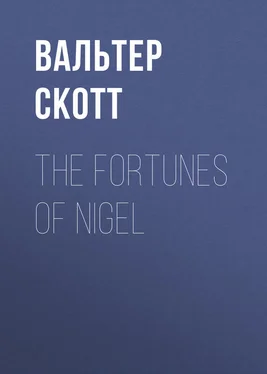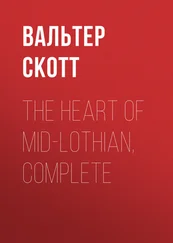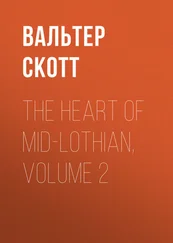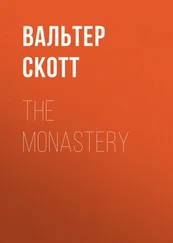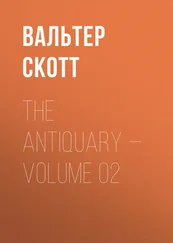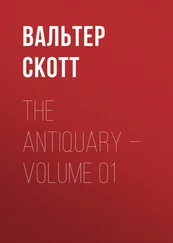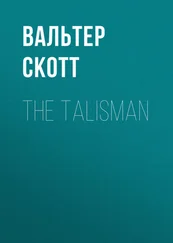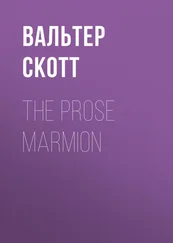Вальтер Скотт - The Fortunes of Nigel
Здесь есть возможность читать онлайн «Вальтер Скотт - The Fortunes of Nigel» — ознакомительный отрывок электронной книги совершенно бесплатно, а после прочтения отрывка купить полную версию. В некоторых случаях можно слушать аудио, скачать через торрент в формате fb2 и присутствует краткое содержание. Жанр: foreign_antique, foreign_prose, Альтернативная история, на английском языке. Описание произведения, (предисловие) а так же отзывы посетителей доступны на портале библиотеки ЛибКат.
- Название:The Fortunes of Nigel
- Автор:
- Жанр:
- Год:неизвестен
- ISBN:нет данных
- Рейтинг книги:4 / 5. Голосов: 1
-
Избранное:Добавить в избранное
- Отзывы:
-
Ваша оценка:
- 80
- 1
- 2
- 3
- 4
- 5
The Fortunes of Nigel: краткое содержание, описание и аннотация
Предлагаем к чтению аннотацию, описание, краткое содержание или предисловие (зависит от того, что написал сам автор книги «The Fortunes of Nigel»). Если вы не нашли необходимую информацию о книге — напишите в комментариях, мы постараемся отыскать её.
The Fortunes of Nigel — читать онлайн ознакомительный отрывок
Ниже представлен текст книги, разбитый по страницам. Система сохранения места последней прочитанной страницы, позволяет с удобством читать онлайн бесплатно книгу «The Fortunes of Nigel», без необходимости каждый раз заново искать на чём Вы остановились. Поставьте закладку, и сможете в любой момент перейти на страницу, на которой закончили чтение.
Интервал:
Закладка:
“Or, if need be,” said Tunstall, “we have swords as well as the Templars.”
“Fie upon it – fie upon it, young man,” said the citizen; – “An apprentice with a sword! – Marry, heaven forefend! I would as soon see him in a hat and feather.”
“Well, sir,” said Jenkin – “we will find arms fitting to our station, and will defend our master and his daughter, if we should tear up the very stones of the pavement.”
“There spoke a London ‘prentice bold,” said the citizen; “and, for your comfort, my lads, you shall crush a cup of wine to the health of the Fathers of the City. I have my eye on both of you – you are thriving lads, each in his own way. – God be wi’ you, Davie. Forget not to-morrow at noon.” And, so saying, he again turned his mule’s head westward, and crossed Temple Bar, at that slow and decent amble, which at once became his rank and civic importance, and put his pedestrian followers to no inconvenience to keep up with him.
At the Temple gate he again paused, dismounted, and sought his way into one of the small booths occupied by scriveners in the neighbourhood. A young man, with lank smooth hair combed straight to his ears, and then cropped short, rose, with a cringing reverence, pulled off a slouched hat, which he would upon no signal replace on his head, and answered with much demonstration of reverence, to the goldsmith’s question of, “How goes business, Andrew?” – “Aw the better for your worship’s kind countenance and maintenance.”
“Get a large sheet of paper, man, and make a new pen, with a sharp neb, and fine hair-stroke. Do not slit the quill up too high, it’s a wastrife course in your trade, Andrew – they that do not mind corn-pickles, never come to forpits. I have known a learned man write a thousand pages with one quill.” [Footnote: A biblical commentary by Gill, which (if the author’s memory serves him) occupies between five and six hundred printed quarto pages, and must therefore have filled more pages of manuscript than the number mentioned in the text, has this quatrain at the end of the volume —
“With one good pen I wrote this book,
Made of a grey goose quill;
A pen it was when it I took,
And a pen I leave it still.”]
“Ah! sir,” said the lad, who listened to the goldsmith, though instructing him in his own trade, with an air of veneration and acquiescence, “how sune ony puir creature like mysell may rise in the world, wi’ the instruction of such a man as your worship!”
“My instructions are few, Andrew, soon told, and not hard to practise. Be honest – be industrious – be frugal – and you will soon win wealth and worship. – Here, copy me this Supplication in your best and most formal hand. I will wait by you till it is done.”
The youth lifted not his eye from the paper, and laid not the pen from his hand, until the task was finished to his employer’s satisfaction. The citizen then gave the young scrivener an angel; and bidding him, on his life, be secret in all business intrusted to him, again mounted his mule, and rode on westward along the Strand.
It may be worth while to remind our readers, that the Temple Bar which Heriot passed, was not the arched screen, or gateway, of the present day; but an open railing, or palisade, which, at night, and in times of alarm, was closed with a barricade of posts and chains. The Strand also, along which he rode, was not, as now, a continued street, although it was beginning already to assume that character. It still might be considered as an open road, along the south side of which stood various houses and hotels belonging to the nobility, having gardens behind them down to the water-side, with stairs to the river, for the convenience of taking boat; which mansions have bequeathed the names of their lordly owners to many of the streets leading from the Strand to the Thames. The north side of the Strand was also a long line of houses, behind which, as in Saint Martin’s Lane, and other points, buildings, were rapidly arising; but Covent Garden was still a garden, in the literal sense of the word, or at least but beginning to be studded with irregular buildings. All that was passing around, however, marked the rapid increase of a capital which had long enjoyed peace, wealth, and a regular government. Houses were rising in every direction; and the shrewd eye of our citizen already saw the period not distant, which should convert the nearly open highway on which he travelled, into a connected and regular street, uniting the Court and the town with the city of London.
He next passed Charing Cross, which was no longer the pleasant solitary village at which the judges were wont to breakfast on their way to Westminster Hall, but began to resemble the artery through which, to use Johnson’s expression “pours the full tide of London population.” The buildings were rapidly increasing, yet certainly gave not even a faint idea of its present appearance.
At last Whitehall received our traveller, who passed under one of the beautiful gates designed by Holbein, and composed of tesselated brick-work, being the same to which Moniplies had profanely likened the West-Port of Edinburgh, and entered the ample precincts of the palace of Whitehall, now full of all the confusion attending improvement. It was just at the time when James, – little suspecting that he was employed in constructing a palace, from the window of which his only son was to pass in order that he might die upon a scaffold before it, – was busied in removing the ancient and ruinous buildings of De Burgh, Henry VIII., and Queen Elizabeth, to make way for the superb architecture on which Inigo Jones exerted all his genius. The king, ignorant of futurity, was now engaged in pressing on his work; and, for that purpose, still maintained his royal apartments at Whitehall, amidst the rubbish of old buildings, and the various confusion attending the erection of the new pile, which formed at present a labyrinth not easily traversed.
The goldsmith to the Royal Household, and who, if fame spoke true, oftentimes acted as their banker, – for these professions were not as yet separated from each other, – was a person of too much importance to receive the slightest interruption from sentinel or porter; and, leaving his mule and two of his followers in the outer-court, he gently knocked at a postern-gate of the building, and was presently admitted, while the most trusty of his attendants followed him closely, with the piece of plate under his arm. This man also he left behind him in an ante-room, – where three or four pages in the royal livery, but untrussed, unbuttoned, and dressed more carelessly than the place, and nearness to a king’s person, seemed to admit, were playing at dice and draughts, or stretched upon benches, and slumbering with half-shut eyes. A corresponding gallery, which opened from the ante-room, was occupied by two gentlemen-ushers of the chamber, who gave each a smile of recognition as the wealthy goldsmith entered.
No word was spoken on either side; but one of the ushers looked first to Heriot, and then to a little door half-covered by the tapestry, which seemed to say, as plain as a look could, “Lies your business that way?” The citizen nodded; and the court-attendant, moving on tiptoe, and with as much caution as if the floor had been paved with eggs, advanced to the door, opened it gently, and spoke a few words in a low tone. The broad Scottish accent of King James was heard in reply, – “Admit him instanter, Maxwell. Have you hairboured sae lang at the Court, and not learned, that gold and silver are ever welcome?”
The usher signed to Heriot to advance, and the honest citizen was presently introduced into the cabinet of the Sovereign.
The scene of confusion amid which he found the king seated, was no bad picture of the state and quality of James’s own mind. There was much that was rich and costly in cabinet pictures and valuable ornaments; but they were arranged in a slovenly manner, covered with dust, and lost half their value, or at least their effect, from the manner in which they were presented to the eye. The table was loaded with huge folios, amongst which lay light books of jest and ribaldry; and, amongst notes of unmercifully long orations, and essays on king-craft, were mingled miserable roundels and ballads by the Royal ‘Prentice, as he styled himself, in the art of poetry, and schemes for the general pacification of Europe, with a list of the names of the king’s hounds, and remedies against canine madness.
Читать дальшеИнтервал:
Закладка:
Похожие книги на «The Fortunes of Nigel»
Представляем Вашему вниманию похожие книги на «The Fortunes of Nigel» списком для выбора. Мы отобрали схожую по названию и смыслу литературу в надежде предоставить читателям больше вариантов отыскать новые, интересные, ещё непрочитанные произведения.
Обсуждение, отзывы о книге «The Fortunes of Nigel» и просто собственные мнения читателей. Оставьте ваши комментарии, напишите, что Вы думаете о произведении, его смысле или главных героях. Укажите что конкретно понравилось, а что нет, и почему Вы так считаете.
